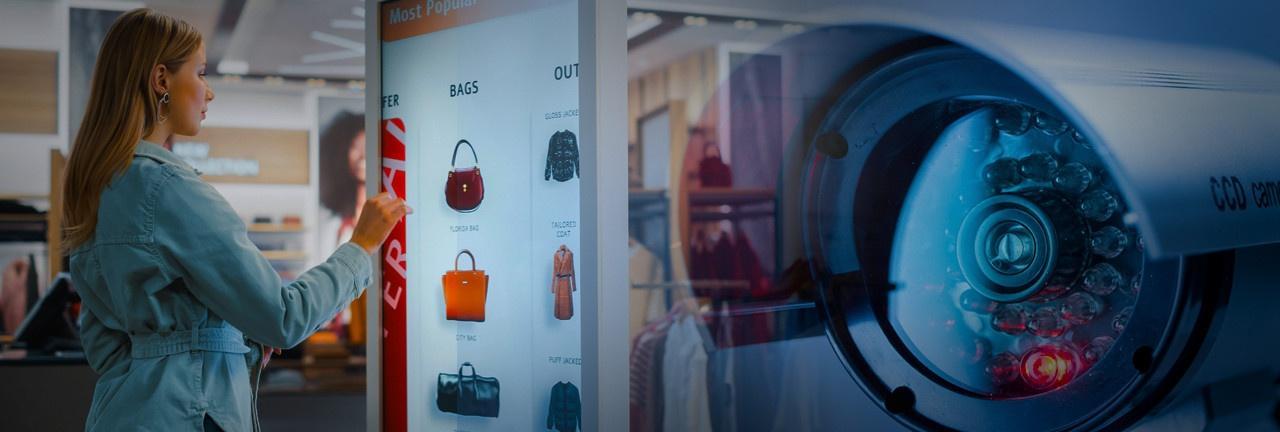Achieving successful digital transformation across the Architecture, Engineering and Construction Sector.
New technologies are transforming every aspect of how projects are brought from conception to completion across the AEC sector. As a result, numerous leaders across the sector are accelerating their digital transformation plans, embracing the Cloud, AI, big data, and IoT in order to both overcome their immediate challenges and bring their long-term business goals closer.
The retail landscape has fundamentally changed in recent years, partly driven by the necessities of COVID lockdowns, and partly by ongoing shifts in customer preferences and behaviour. As we have previously explored on this blog, the familiar high street shopping experience is increasingly converging with online and click-and-collect shopping, offering a new breed of data-driven shopping experience.
Although digital transformation amongst Legal firms has typically been comparatively slow compared to other sectors, the journey has picked up speed over the course of the last decade.
Although the sector as a whole has traditionally been comparatively wary of the ever-increasing pace of technology, legal services are increasingly data driven, with an abundance of AI-related discussion emerging within legal technology circles. The core Document Management Systems (DMS) and Practice Management Systems (PMS) remain the centre of focus for how and where to deploy a variety of rapidly maturing SaaS platforms, or dedicated, highly customised suites.
Organisations' demands of their IT infrastructure continue to evolve at an unprecedented rate, with the drive for growth and innovation needing to be balanced against the need to maintain cost control, visibility, and - crucially, cyber security. Numerous solutions have emerged in response to these challenges, but one of the most pivotal questions organisations must answer is whether to host their critical data and applications on-site, or in the Cloud.
Let's explore the respective advantages and disadvantages of both approaches, and then consider whether the increasing sophistication of modern workloads demand a new approach...
Like many organisations throughout 2020, professional associations have been forced to dramatically reconsider how they interact with both current and potential members, in light of social distancing requirements and the move towards a distributed workforce.
The Retail sector is more diverse, dynamic, and rapidly changing than any other time in its history. This not only encompasses the way customers make their purchases – with online shopping, click-and-collect, and in-person shopping all converging to offer true, end-to-end experiences – but also the way retailers open and operate new sites. Whether this means trendy pop-up shops, kiosks at other brands' locations, or booths at events, retailers from up-and-coming start-ups to global leaders are no longer relying on fixed high-street locations to welcome their customers and put their wares on display, instead making sure they are present wherever their ideal customers are, and fully prepared to offer a world-class experience that builds brand recognition and loyalty.
Retailers - be they small local shops, online sellers, or top global brands - generate, transfer, and store more data than ever before, ranging from customer data (both online and in-store, as we have considered in previous articles), to supply chain and asset tracking data. Whether it's shopping online or utilising in-store apps to access the latest savings and special offers, the way customers shop has fundamentally changed forever, with the data they generate online and in person allowing retailers to build up unique personas that drive truly bespoke experiences.
Like many longstanding institutions, Britain's world-renowned pubs are undergoing their own digital transformation journey, utilising leading-edge technologies to offer truly personalised experiences to patrons of all ages and backgrounds - from longstanding regulars visiting for their usual pint, to families looking for a meal, and young professionals working on the go. It's an exciting time for the sector as a whole, but at the same time, the drive for modernisation must not come at the expense of patrons' safety and enjoyment.
With fundamental shifts in consumer behaviour, changing economic conditions, and a rapidly evolving regulatory environment, it's a challenging but exciting time for the UK's retail sector, and technology has a key role to play. In particular, advances in IT and networking solutions are empowering retailers to enhance their operational efficiency, improve the customer experience, and retain their competitive edge in an increasingly online and interconnected world.
As a long-standing technology partner for multiple financial organisations across the UK, the team at Exponential-e have been observing the sector's evolving relationship with technology for some time - both the growing demand for a higher standard of operational resilience, and an increasing awareness of the challenges and opportunities that Cloud transformation presents.
The Finance sector has always been one of the most dynamic, rapidly evolving industries, and this shows no signs of changing any time soon. But while shifts in the landscape may well open new opportunities, they will also come with new challenges, and it is the organisations who are ready and able to face these head-on who will continue to thrive in the years ahead.
From day-to-day consumer banking to high-profile asset and wealth management, the way we all access financial services is changing in ways that would have been inconceivable just a few years ago. Online banking is now firmly established, allowing customers to manage their money securely within a few clicks - anytime, anywhere and without the need to visit a branch. A 2022 survey revealed that the quality of the online experience was a key factor in 81% of adults' choice of bank1.
"The world will never be the same after Coronavirus…"
I kept hearing this phrase a few weeks ago and had no idea why people were saying it. Why would the world never be the same again? It didn't make any sense to me, surely once this is over it will all go back to the same way it was before, right? Wrong.
Over the past few years there has been a major increase in organisations adopting digital tools. With serious cost and efficiency gains to be generated, the benefits of transitioning to digital ways of working are no great secret; and companies are now consistently seeking to streamline with varying degrees of success.
In today's competitive environment, being flexible is a fundamental part of any business strategy to survive. To be flexible, organisations must make the necessary changes needed to respond effectively to the changing market. One simple way organisations can increase their flexibility is by using the innovative technology solutions and services that are available.





















